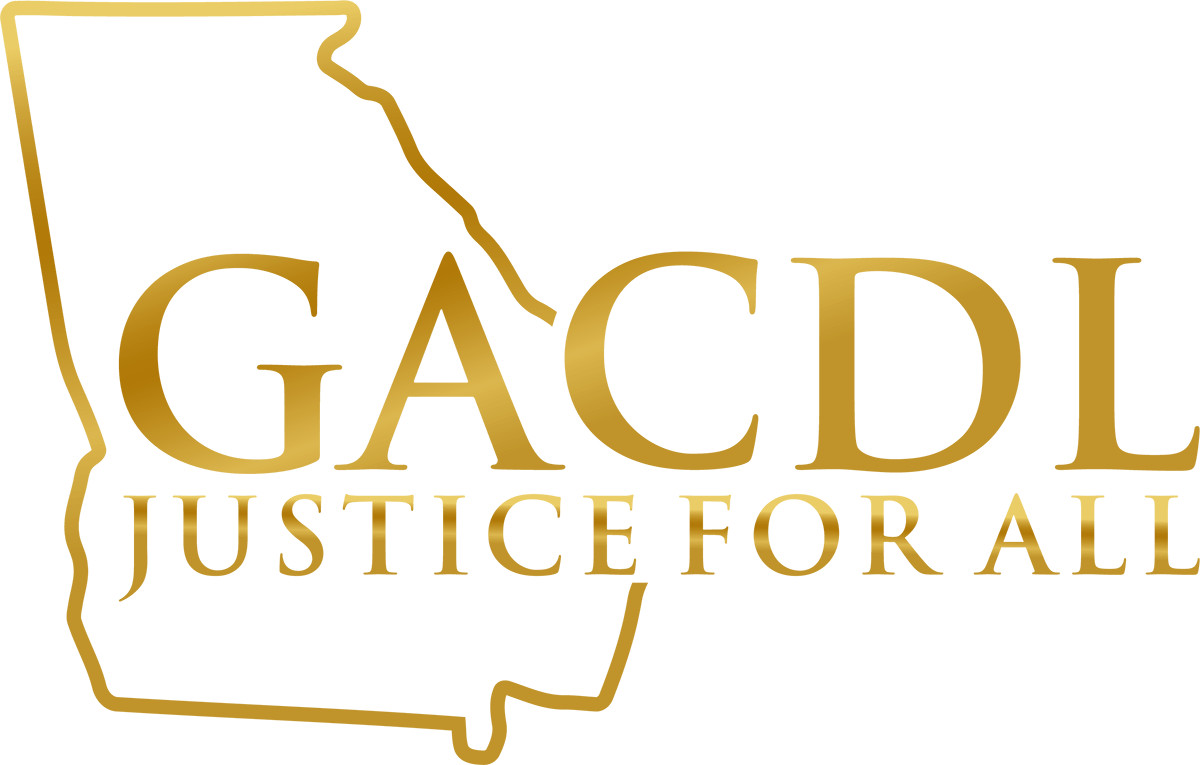
Amicus Committee Process
GACDL’s Amicus Committee seeks to help, rather than burden, our courts. Effectiveness comes with selectivity. GACDL can be most helpful in those few cases when an amicus brief is necessary. And, when the committee weighs in on more than those cases, its ability to help the select few is compromised.
There are four situations when an amicus briefs should be filed:
- When a party is not represented competently;
- When a party is not represented at all;
- When the amicus has an interest in some other case that may be affected by the decision in the present case (though not enough affected to entitle the amicus to intervene and become a party in the present case); or
- When the amicus has unique information or perspective that can help the court beyond the help that the lawyers for the parties are able to provide.
An amicus brief should not simply restate what the counsel for the appellant or appellee has already argued. Rather, responsible amicus practice requires the committee to consider carefully whether our organization will bring a unique perspective to the case that the parties have not brought or cannot bring. The criteria should be global in nature with a view to how this case, with its potential to set precedent, will alter the landscape of what it means to represent the accused.
Things Beyond the Amicus Committee’s Purview
The committee:
- Was not established to write briefs for GACDL members;
- Is not a resource to assist members with their appellate case. GACDL frequently features speakers on appellate topics at our seminars. The amicus committee lacks the resources to assist members on their appellate cases;
- Does not sign off on pre-written briefs;
Does not assist in cases at the trial court level; and - Does not weigh in on civil cases unless the litigation is related to a criminal case or unless the rule from the case will set precedent in criminal cases.
The Vetting Process
The committee responds to requests for amicus briefs from appellate courts or from lawyers who bring cases to us. Requests for amicus briefs should be submitted to the chairperson in writing (Amicus Request Form) and should include a summary of the issue at stake.
The requesting attorney needs to provide the decision or order from the lower court, as well as the briefs filed by the state and the defendant. The GACDL amicus committee needs to know if there are other organizations that will be writing amicus briefs. If any other groups are considering writing a brief, please give the amicus chairperson that information as a part of your request.
The chairperson will prepare a summary and forward the necessary supporting documents to the full committee. The committee will discuss the case at length and determine whether this is a legal issue which affects the membership of GACDL and clients of our membership and whether an amicus brief will assist the appellate court in understanding the issues before it. In addition, the issue should have an impact on other cases and situations in criminal practice. Consideration is also given to issues in which GACDL has a unique approach which was not argued in the briefs filed by the parties. If the committee decides to weigh in, it decides what GACDL’s position will be, and an author is assigned. The GACDL Executive Committee votes on the organization weighing in since entry in the case reflects an opinion of this organization. The position that the brief will take is often fluid as the brief is prepared and finalized.
The amicus committee receives many more requests for consideration per year than it grants. The committee carefully reviews each request and makes an informed decision. A denial by the amicus committee should not be taken personally. Often the decision not to get involved in a case means that counsel for the party has adequately addressed the case and there is nothing to add. Other times the committee decides that GACDL’s involvement could harm the case for the party requesting the brief. For instance, if the party would benefit most if the court views the case as inconsequential, our involvement may call attention to it. If the attorney requesting amicus assistance was successful and is defending against a certiorari petition, GACDL’s involvement may make it more likely that certiorari will be granted.
Timing Considerations
Pursuant to Georgia Supreme Court Rule 23, amicus briefs must be filed within ten days of the filing of the party’s initial brief/application/petition which GACDL is supporting. Amicus briefs filed in the United States Supreme Court must be filed within 30 days of the filing of the brief which GACDL is supporting. Amicus briefs filed in the Georgia Court of Appeals must be filed before the court renders its decision.
Factors that are Inconsequential to the Committee’s Decision:
- The unique facts of the case, particularly if the case involves a highly deferential standard of review;
- The number of years the attorney requesting an amicus brief has been a member of GACDL;
- The name of the GACDL member who referred the case to the committee. Amicus consideration is not a favor to the party; it is an opportunity to be a friend of the court; and
- The number of times in the past the party requesting consideration has been unsuccessful in getting the committee to weigh in. We do not have a quota per member. Some members who request an amicus brief may have every request granted, while others may have none. The committee considers each case on its merits.
The Writing Process
When the committee decides to weigh in, it assigns an author, generally a committee member, to draft the brief. That brief is then sent to the committee chairperson and the President of the GACDL for final revisions and is signed by the committee chairperson and the President. The committee may, but will not always, provide the requesting attorney with a copy the brief before it is filed with the court.
GACDL’s Position and the Requesting Attorney’s Position
Although a rare occurrence, occasionally the positions of the GACDL and the requesting attorney are not aligned. If GACDL authors an amicus brief, the requesting attorney does not have the final say in what that brief contains. GACDL’s take on a case is global in scope and is always dedicated to furthering our mission: “to promote fairness and justice through membership, education, services and support, public outreach, and a commitment to quality representation for all.”
Adopted from: How to Help GACDL be a Good Friend of the Court
by Scott Key, GACDL Past President
Edited by Elizabeth Brandenburg, GACDL Treasurer
Edited by Greg Willis, 2022 Amicus Committee Chair
